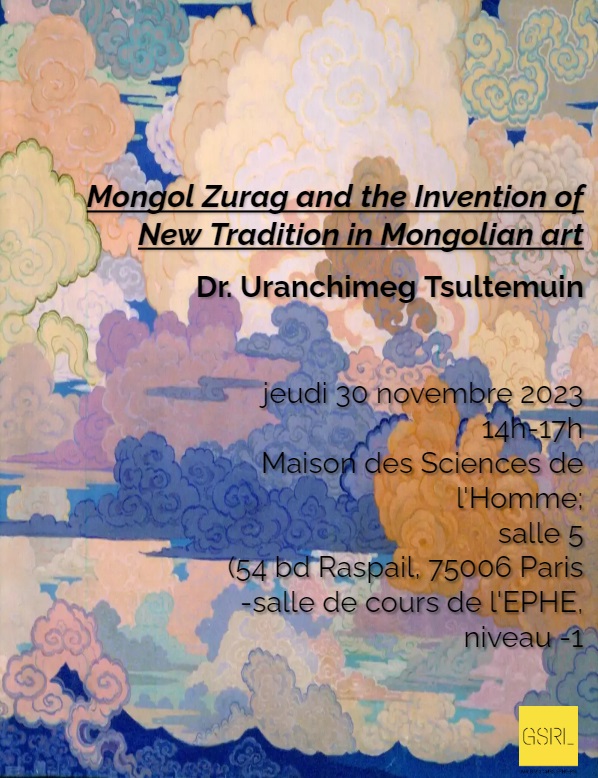Isabelle Charleux & Valeria Gazizova organisent le 26 Octobre 2023 le workshop intitulé “Warrior gods and fierce protectors of Mongols and Tibetans: representation, localisation and
mobility”.
Discutant: Grégory Delaplace
Date: 26 October 2023 (UTC+2)
Location: Salle 0.007, Bâtiment de recherche nord, Campus Condorcet, 14 cour des Humanités
93322 Aubervilliers cedex
Résumé:
The workshop concerns the Mongol and Tibetan protective deities traditions in their context specific forms and through the lens of the complex regional, political or ancestral implications for the communities in which they are encountered. Of central interest are gods, goddesses and spirits which despite their attributed protective tasks pertain to various kinds of violence – whether in relation to their functions, genealogy, mythology, iconography, or ritual interactions with them. Such cosmological entities may include warrior gods, wrathful protectors of religion, fierce Tantric tutelary deities, deified ancestors and epic heroes, ambivalent territorial spirits, or demons inflicting illnesses, with the boundaries between all these categories often being rather fluid in practice. Fierce deities can be explored across such axes as ritual landscape and ecology, iconography and material culture, ritual evolution and healing practices, transcultural borrowings and indigenisation, and transposition and mobility.
Why do certain communities choose violent gods as their key socio-cultural or political
representations? What forms can vehicles involving relationship with fierce divinities take and what are they used for? How can aggression and malice be represented in devotional arts and practices? Can violence and wrath, associated with these entities, be conducive to their mobility? In other words, to what extent can violence engender mobility, and the other way round, particularly in relation to religious and cultural forms?
Programme
